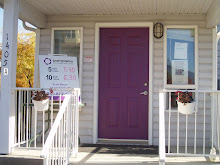 It’s not surprising that some homeowners confuse the terms “second mortgage”
It’s not surprising that some homeowners confuse the terms “second mortgage”and “home equity loan.” After all, a second mortgage is a type of home equity
loan. But more often than not, home equity loan is used to describe a home equity
line of credit, or HELOC. If you want to take advantage of the equity that you have
built up in your home, you will need to decide if a HELOC or a true second
mortgage is best for you.
Before discussing which might be better for your purposes, let’s look at some of
the basics of each. A second mortgage pays out a fixed sum of money to be repaid
on a set schedule, like your initial mortgage. Unlike refinancing, the second
mortgage does not supersede the first mortgage. Second mortgages are usually 15
to 30 year loans with a fixed rate of interest. Like the initial loan, the rate of
interest and points (if any) will be based on your credit history, the price of the
home, and the current interest rate. While the interest rate on a second mortgage
may be a little higher, the fees are generally lower.
HELOC, however, is similar to a credit card, and it may even include a credit card
to make purchases. Like credit cards, interest is charged, and the amount you can
borrow is based on your credit worthiness.
To determine the limit of your HELOC, lenders will look at the appraised value of
your home, you may have access to up to 80% of the appraised value or purchase
price of your home (whichever is lower), less any prior outstanding mortgage
charges. As your mortgage balance decreases, your available rate increases.
Your current financial needs will help to determine which type of loan is right for
you. If you need money for a one-time expense, such as building a new deck or
paying for a wedding, you would probably opt for the fixed-rate second mortgage.
But if you forecast a recurring need for extra money, such as tuition payments,
you may prefer a HELOC. A line of credit allows you to borrow when you need the
money and, if you pay back the amounts quickly, you can save money over a
second mortgage. You also need to consider your spending habits. If having
another credit card in your wallet would temp you to spend more often, then you
are not a good candidate for a HELOC.
Once you make an initial determination about which loan might be right for you,
you will need to discuss the details with a professional. We recommend that you
speak with an independent mortgage broker with experience in this sector to help
you make the most effective decision among the products available.
Why work with an independent broker?
- Because they are not loyal to any one financial institution (i.e. like a bank
consultant), the options presented will be greater.
- Independent mortgage brokers scour the market for the best mortgage
products – not just those being pushed by a particular company. As the
mortgage broker fee is paid by the lending institution, it’s a decision that
doesn’t cost you anything.
(Source: AllBusiness.com)
S

